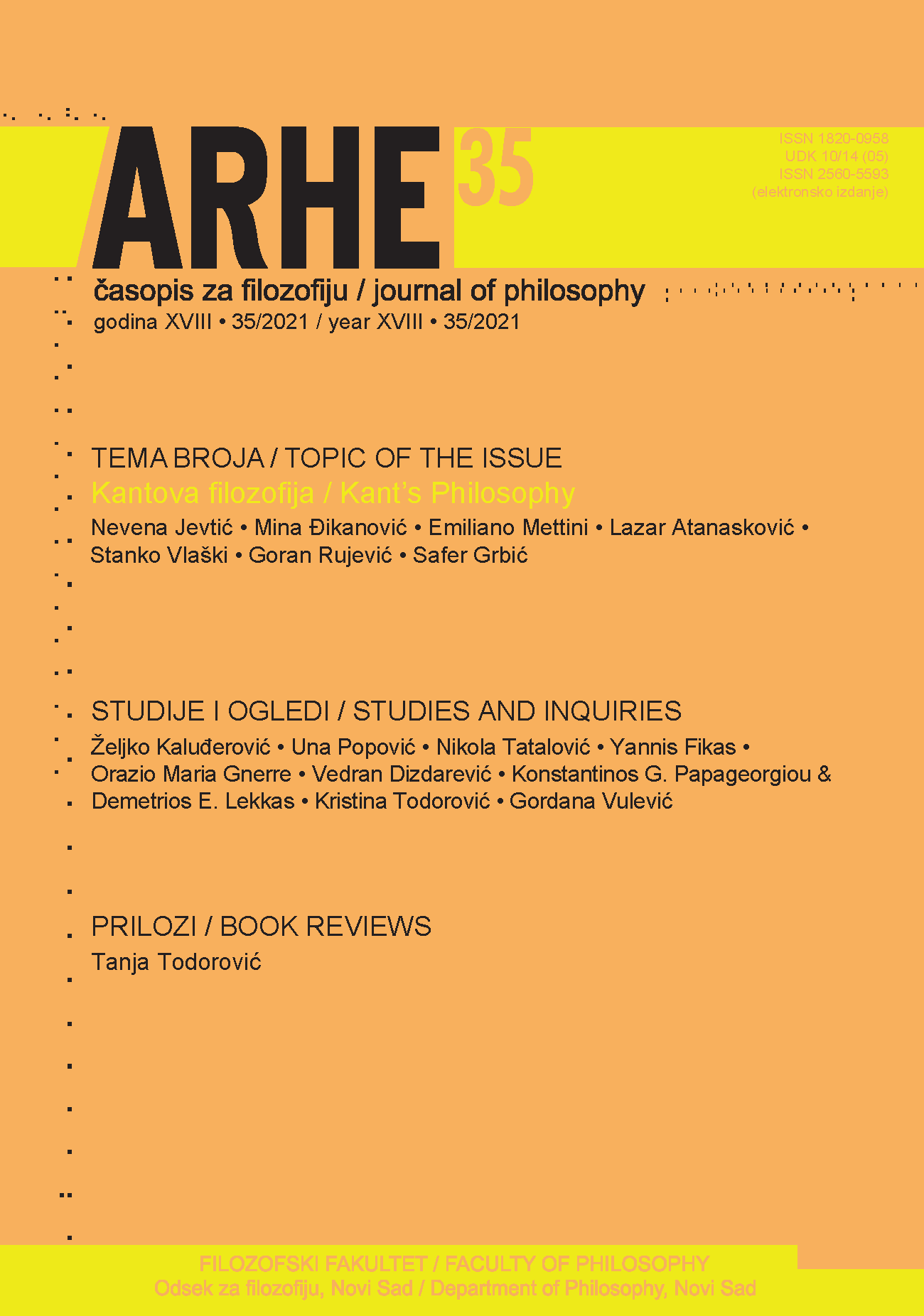AN ANALYSIS OF THE NOTION OF REFLEXIVITY IN PIERRE BOURDIEU’S THEORY
Main Article Content
Abstract
In this paper, we are going to analyze one of the central notions in the theory of the French sociologist and anthropologist Pierre Bourdieu, the notion of reflexivity. In the first part, we are going to introduce this notion and the wide tradition of the Kantian philosophical project, and Bourdieu’s specific reading of this project through the lenses of Emil Durkheim, Marcel Mauss, Rudolph Karnap, and Ludwig Wittgenstein. After that, through a close reading of some of Bourdieu’s texts, in dialogue with the notes of his commentators, we are going to define the notion of reflexivity and its meaning. In the second part, we are going to observe the specific problem of the scientist in the field of science, his relation to the field, his habitus, and the particular problem of the scholastic situation – all of which are the main obstacles to the practice of reflexivity. In other words, we are going to practice reflexivity about the scientific calling and the scientific profession. Also, we are going to illustrate what it actually means to talk about the field of science, and not only about science in and of itself. In the third part, we are going to focus on the need for reflexivity in the domain of the social sciences, which are at the same time the product and the producer of social reality.
Article Details
References
Bloor, D. (1983). Wittgenstein: A social theory of knowledge. London: The Macmillan Press. DOI: https://doi.org/10.1007/978-1-349-17273-3
Bourdieu, P. (1990). The Logic of Practice. Stanford: Stanford University Press. DOI: https://doi.org/10.1515/9781503621749
Bourdieu, P. (1992). Što znači govoriti. Zagreb: Naprijed.
Bourdieu, P. (1994). In Other Words: Essays Towards a Reflexive Sociology. Stanford, California: Stanford University Press.
Bourdieu, P. (2000). Pascalian Meditations. Stanford: Stanford University Press.
Bourdieu, P. (2004). Science of Science and Reflexivity. Chicago: The University of Chicago Press.
Bourdieu, P. (2008). Sketch for a Self-Analysis. Chicago and London: The University of Chicago Press.
Bourdieu, P., Chartier. R., (2015). The Sociologist and The Historian. Cambridge: Polity Press.
Carnap, R. (1950). Empiricism, Semantics, and Ontology. Revue Internationale de Philosophie 4 (1950): 20-40. Reprinted in the Supplement to Meaning and Necessity: A Study in Semantics and Modal Logic, enlarged edition (University of Chicago Press, 1956).
Cassirer, E. (1951). The Philosophy of the Enlightment. New Jersey: Princeton University Press.
Deer, C. (2008). Reflexivity. In Grenfell. M. (ed.). Pierre Bourdieu: Key Concepts, 199-212. Durham: Acumen Publishing Limited. DOI: https://doi.org/10.1017/UPO9781844654031.017
Jenkins, R. (1992/2006). Pierre Bourdieu. London and New York: Routledge. DOI: https://doi.org/10.4324/9780203131527
Kun, T. (1974). Struktura naučnih revolucija. Beograd: Nolit.
Levi-Stros, K. (1979). Totemizam danas. Beograd: Beogradski izdavačko-grafički zavod.
Levi-Strauss, C. (1987). Introduction to the Works of Marcel Mauss. London: Routledge & Kegan and Paul.
Locke, J. (2014). An Essay Concerning Human Understanding. Hertfordshire: Wordsworth Classics of World Literature.
Susan, S. (1978). Illness as Metaphor. New York: Farrar, Straus and Giroux.
Williams, R. (1965). The Long Revolution. London: Penguin Books.
Kant, I. (2012). Kritika čistoga uma. Beograd: Dereta.
